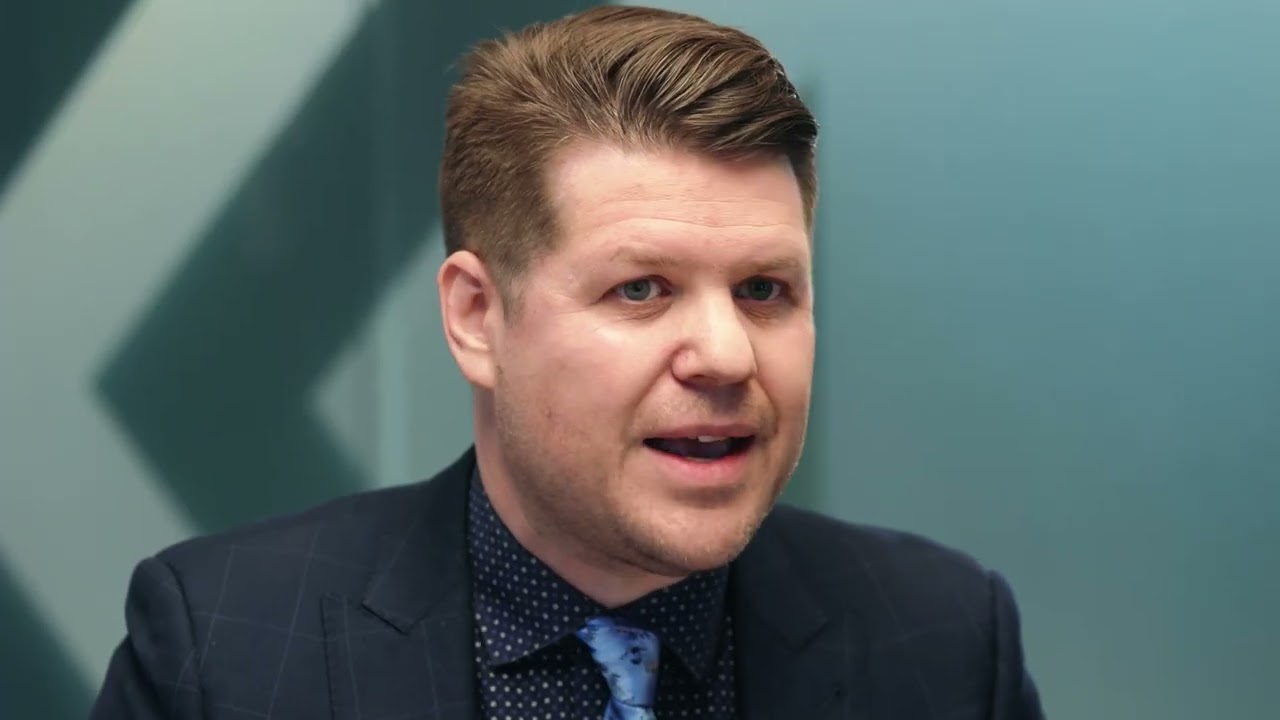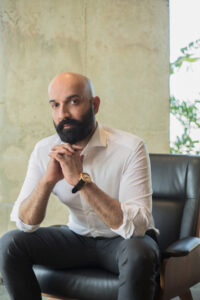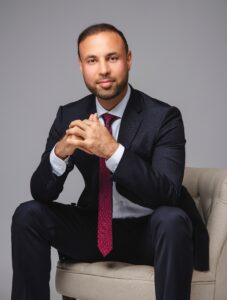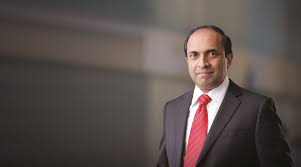
Longtrepreneur continues to bring the best-in-class tech and business leaders to get their take on long-term thinking in the world of Commerce, Technology and Entrepreneurship.
This week’s “Take the L” series guest is a personality who needs no introduction: Chris Carder – Executive Director – Office Of Innovation and Entrepreneurship.
Here is the conversation in an interview format between Yawar Abbas(Longtrepreneur) and Chris Carder(Schulich School Of Business).
Yawar Abbas: How do you begin your day?
Chris Carder: My day begins with four children for most of my week. So it is like gathering them up, rallying them for breakfast, making breakfast for them. Sure, I throw a little coffee in there on the side. I have set up my office so that it’s actually on the other side of the kitchen counter in the middle of the kitchen.
That way, when I’m cooking for my family, I can move back and forth between the stove and reply to everything that is happening in my work day. Especially in the summer because there’s breakfast for kids, lunch and dinner on different days. I’m looking at the soccer schedule.
Yawar Abbas: What was your childhood like growing up?
Chris Carder: Both my parents were teachers, so I think it’s not surprising that I’ve wound up eventually through my meandering path of journalism to being a digital magazine publisher, to a technology company founder, to an investor, to now an adjunct professor with Schulich. It’s not surprising that I wound up there.
Yawar Abbas: Amongst your parents, who had more sway over you?
Chris Carder: Travelling across the country in the summers and across the United States because living with two teachers – my parents, they couldn’t stop sharing and teaching and opening doors and insights to sorts of interesting things. So that was what my childhood was like growing up. So, as a result, it is not surprising that I landed where I did, and for the first time in my life, my parents truly understood what I did.
Yawar Abbas: When did you catch the “entrepreneurial bug?”
Chris Carder: I’m 52 years old now, and back when I started, I don’t know, I have to go back and see for sure, but I was either 22 or 23 or something like that. And, many people get that bug, as you say, because they have some big problem they want to solve in the world.
In my case, I had just graduated from journalism school at Toronto Metropolitan University, and even back then, journalism jobs at newspapers, radio stations, and TV stations were already starting to decrease and dwindle.
It was tough to get in. So you had to go to different far regions of the country at little outposts of newspapers and then fight your way back eventually to Toronto.
My entrepreneurial statement was, “I don’t want to leave Toronto. I love it. I don’t want to go work in some tiny small town“. So, because there were no jobs, I decided to make my own magazine and publication, and that would be how I would live and sustain myself in Toronto, but I couldn’t afford paper.
Yawar Abbas: What was your unique insight in launching ThinData?
Chris Carder: There were 8-10 email marketing firms at the time. However, our unique insight was go-to-market strategy. The go-to-market insight was that all of the competitors in Canada, the companies that went before us because we were last in the space, sold all of their product through ad agencies and marketing agencies, and we were the first company to go direct to the big corporate clients and sell the platform directly as if we were capable of sitting equally at the table with the ad agencies and the communication companies and the big web developers. We elevated email as a sector, as an equal.
And really, email was the precursor to all of the marketing automation technologies and marketing automation/CRM-type technologies that became like corporate salesforce over time.
So we took a seat at that table, and there’s a particular strategy as to how we took that seat at the table, which worked perfectly. Within two years, we took 200 top corporate clients in the country, 8 of 10 of our competitors were bankrupt, and we’re still in business. Again, it wasn’t because the technology was so different from anyone else.
It was because we understood something unique: they were trapped inside a go-to-market with another party between them and the client, unable to defend themselves from a different strategy.
We went direct to the clients with a different message, different insights, and different sets of capabilities, which disrupted the entire marketplace and brought everybody to us. We grew incredibly dramatically over those years and then eventually sold the business.
Yawar Abbas: Why did you repay the investors who invested $20K in your business?
Chris Carder: I’ve got some great advice. Initially, I was not going to. It wasn’t in my thought process that I would pay it back. That investment was specifically a side business that we set up. That was an eCommerce business that sold autographed merchandise from famous sports celebrities.
Barry Watson at Environics pointed out that repaying the equity was the right thing to do with such a well-connected and respected business leader (the Environics Chairman, Derek Ruston). So we repaid it $50, $150, $200 at a time.
A few years later, after repaying that first investment, I had lunch with Derek, asking him for advice on how to raise $ 1 million for my business to scale up operations. “Derek said: You ask me for it.” I asked: “Derek, may I please have $ 1 million for my business?” Derek: “I will round up my friends and help you raise $ 1 million for your business.”
Ninety days later, we met at the same restaurant, and he handed me a cheque for $ 1 million with another couple hundred thousand as a top-up.
Since a business partner and I had previously returned Derek’s $20,000, he told me, “I learned everything about your character when you paid back my $20,000.” Derek.
The story’s ethos is such that if founders’ companies fail in the first or second try. They can find ways to repay their previous investors by making it up by referring them clients and talent or even carving out some space in funding rounds of their new companies. The character of a founder matters a lot.
Yawar Abbas: How did you become a venture partner at Antler?
Chris Carder: Naman and I met through the Young Presidents Organization, where we were both members and became friends. When setting up Antler-Canada, he asked me if I would play a role and be involved as a venture partner. I have a dual role. He and Bernie are fantastic leaders with great values in the ecosystem I respect, so I work to give them their sounding boards.
Yawar Abbas: What do you love about being an Entrepreneur in Residence and Advisor to Startups?
Chris Carder: I coached from Antler to Treefrog, YSpace at York University, Schulich startups, and my program with Startup India, the Together Program, which has supported hundreds of student entrepreneurs in India.
Over the last four years, I’ve coached at least 1000 startup companies to which I’m connected. I always say they will have the most crucial opportunity when making the most significant decision.
I want them to call me and ask me for my thoughts. And, when they’re facing the biggest challenge or looming disaster they’re ever going to face and their company history, I want them to call me as well. I have a strict founder-first mentality.
That doesn’t mean I won’t tell the truth or hold them accountable, but I have a deep empathy and connection to the founder, and I will always put their life, family, and interests first, even when I have my money in the business.
Yawar Abbas: What is your favourite cuisine?
Chris Carder: My favourite cuisine? I love sushi, and my favourite restaurant is “Ki” down on Bay Street, so I’ve had business meetings at Ki. I’ve had many business dinners there.
But, outside of that, if I could have like my one meal if it were like, “Chris, you can have one meal for the rest of your life” or “You can have your last meal on earth,” it would be my mom’s Christmas dinner or thanksgiving dinner meal that she makes with the turkey and the stuffing and the sweet potatoes and the turnip and the desserts that she makes.
The whole thing. That would be my choice over any restaurant or food I could go to in the world.
Yawar Abbas: Which three people would you want to nominate for the “Take the L” interview series with me on Longtrepreneur?
Chris Carder:
- Myra Arshad – ALT Tex
- Peyvand Melati – Archangel and QEA Tech
- Keith Loo – Skinopathy




